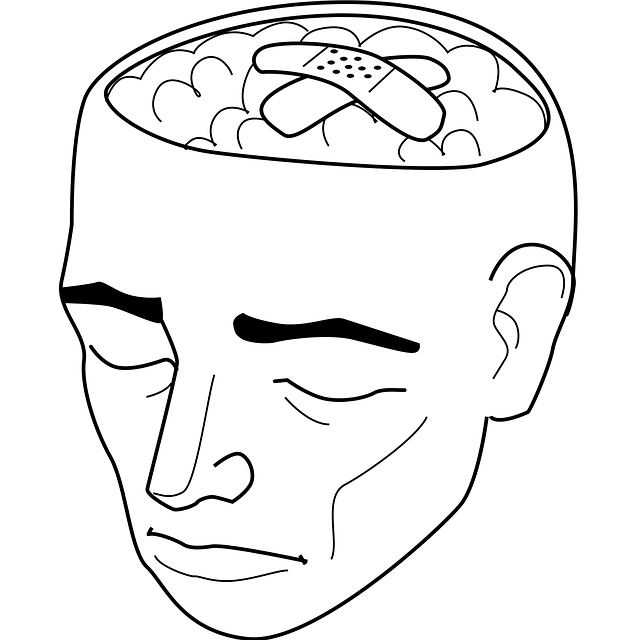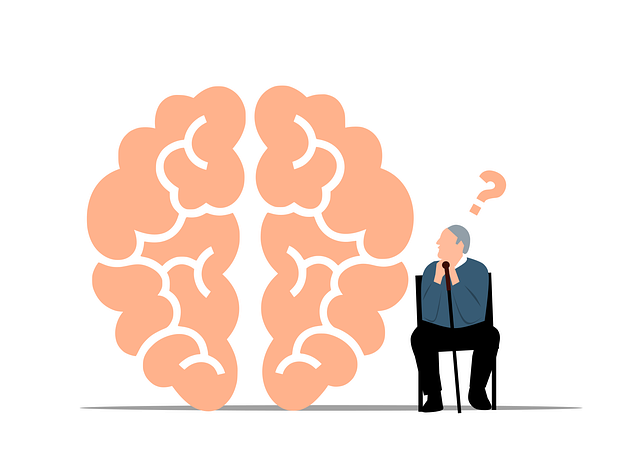Mental health professionals treating elders face unique challenges including complex health needs, social isolation, and heightened depression/anxiety risks. Effective care requires tailored communication, holistic approaches, and compassion cultivation. Implementing suicide prevention protocols, training, and cultural sensitivity reduces risks. Identifying harms in elder care settings is crucial for risk assessment, with strategies like journaling and stress management workshops. Multi-faceted risk assessment combines evaluation and mitigation, incorporating crisis intervention and emotional regulation techniques. Regular case reviews, peer supervision, and open communication thrive within a robust therapeutic ecosystem, integrating therapy for elders and suicide prevention to enhance mental wellness.
Mental health professionals face unique challenges when treating elderly clients, with increased risks of cognitive decline, depression, and suicide. This article explores the vital topic of risk assessment in geriatric mental health therapy, focusing on strategies to mitigate potential harms. We delve into specific considerations for suicide prevention protocols and identify sources of harm within elder care settings. Additionally, effective risk assessment techniques and post-assessment strategies for building resilient practices are discussed, emphasizing continuous improvement for optimal client care.
- Understanding the Unique Risks in Elderly Mental Health Therapy
- The Impact of Suicide Prevention Protocols on Healthcare Professionals
- Identifying Potential Harms and Their Sources in Elder Care Settings
- Strategies for Effective Risk Assessment and Mitigation Techniques
- Building Resilient Practices: Post-Assessments and Continuous Improvement
Understanding the Unique Risks in Elderly Mental Health Therapy

Mental health professionals who specialize in therapy for elders face unique challenges due to the distinct risks and considerations associated with this demographic. As individuals age, they often deal with complex issues like chronic illnesses, cognitive decline, social isolation, and a heightened risk of depression and anxiety—all factors that can significantly impact their mental well-being. These co-morbidities require specialized care, necessitating therapists to be adept at navigating the complexities of elderly mental health.
Effective therapy for elders goes beyond addressing specific mental health disorders; it involves implementing tailored communication strategies and compassion cultivation practices. Recognizing the importance of suicide prevention among this vulnerable population, therapists must cultivate a deep understanding of their clients’ lives, incorporating holistic approaches that address physical, emotional, and social aspects to enhance overall well-being and depression prevention.
The Impact of Suicide Prevention Protocols on Healthcare Professionals

The implementation of suicide prevention protocols within mental health care settings has a profound impact on professionals working with vulnerable individuals, particularly elders undergoing therapy for suicide ideation. These protocols emphasize the importance of proactive risk assessment and interventions, ensuring healthcare providers are equipped to handle such delicate situations effectively. By integrating evidence-based practices, regular training, and ongoing supervision, mental health professionals can enhance their ability to recognize and manage suicidal behaviors, ultimately reducing potential risks.
In addition to formal training, cultivating emotional intelligence and cultural sensitivity in mental healthcare practice plays a pivotal role in suicide prevention. Elderly patients from diverse backgrounds may have unique perspectives and experiences that influence their mental health journeys. Professionals with high emotional intelligence can adapt their therapeutic approaches, demonstrating empathy and understanding, which are crucial for building trust and facilitating meaningful conversations about suicidal tendencies. Public awareness campaigns development also contributes to this effort by fostering a broader cultural shift, encouraging open dialogue, and reducing the stigma associated with seeking help for mental health crises.
Identifying Potential Harms and Their Sources in Elder Care Settings

Identifying potential harms in elder care settings is a critical aspect of risk assessment for mental health professionals. Elders, often dealing with frailty and cognitive decline, are susceptible to various psychological risks. These include depression, anxiety, and even suicidal ideation, which can be exacerbated by social isolation, physical illness, and the stress of transitioning into care facilities. Mental wellness journaling exercises and mood management strategies can help mitigate these risks by providing elders with tools to process their emotions and connect with others.
Among the sources of harm, inter-personal conflicts within care homes and inadequate support from caregivers are significant contributors to mental health deterioration. Additionally, mismanaged medication side effects and lack of engaging activities can further increase vulnerability. Stress management workshops organized by the facility can empower both residents and staff, fostering a more supportive environment. Effective risk assessment should encompass these aspects, ensuring tailored interventions that promote not just therapy for elders but also overall mental wellness within care settings.
Strategies for Effective Risk Assessment and Mitigation Techniques

Effective risk assessment for mental health professionals involves a multi-faceted approach that combines thorough evaluation and proactive mitigation strategies. One key technique is incorporating crisis intervention guidance into routine practice, enabling professionals to swiftly identify red flags and provide immediate support. This includes training in de-escalation methods and emotional regulation techniques, crucial for navigating high-risk situations with empathy and calmness.
Additionally, building empathy becomes a powerful tool in risk assessment. Empathy-building strategies foster deeper connections and encourage clients to open up about their struggles, including suicidal ideation or tendencies. By creating safe, non-judgmental spaces, professionals can better understand the underlying causes of distress, thereby enhancing their ability to offer tailored interventions. Embracing mind over matter principles, which emphasize cognitive reframing and positive thinking, can also empower clients to develop resilience and cope more effectively with mental health challenges, ultimately contributing to improved suicide prevention outcomes in therapy for elders.
Building Resilient Practices: Post-Assessments and Continuous Improvement

After conducting initial risk assessments, mental health professionals must integrate post-assessment strategies into their practices to foster resilience and prevent potential crises. This includes implementing tailored interventions for high-risk clients, such as elderly individuals facing depression or those at risk of suicide. Regularly reviewing case notes and client progress can help identify early warning signs and enable prompt intervention. Professionals should also engage in continuous quality improvement by participating in peer supervision, professional development workshops, and even hosting a Mental Wellness Podcast Series Production to share best practices and stay abreast of the latest research.
Encouraging open communication within the therapeutic community and with external support networks is vital for managing risks effectively. Mental health professionals can build resilient practices by fostering an environment where colleagues can discuss challenging cases, learn from one another, and collaborate on innovative solutions. This collective approach to stress management ensures that both clients and practitioners are supported in their pursuit of mental wellness, ultimately contributing to a more robust and adaptable therapeutic ecosystem.
Mental health professionals working with elderly clients face distinct risks, including those associated with therapy for elders and suicide prevention. By understanding these unique challenges and implementing robust risk assessment strategies, healthcare providers can create safer care environments. This includes identifying potential harms in elder care settings, adopting effective mitigation techniques, and fostering resilient practices through continuous improvement post-assessments. Such proactive measures are vital to ensure the well-being of professionals while delivering high-quality mental health services tailored to the needs of elderly patients.














